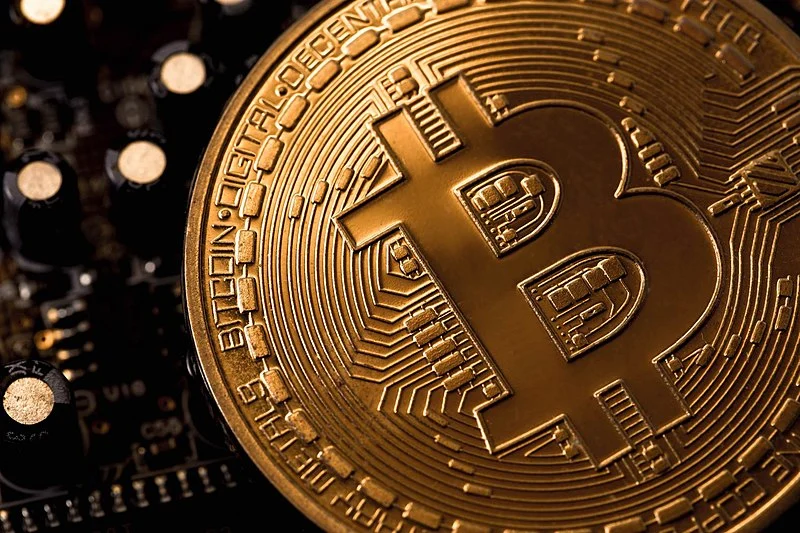David Agullo
Bitcoin Mining is Disastrous For The Environment

While the advantages and disadvantages of bitcoin and other cryptographic money have for quite some time been discussed, their effect on the environment has just barely started to be talked about.
Some contend that they are obscure and untraceable, and others excuse them as a bubble prepared to explode, but despite reactions, cryptocurrencies make up a critical part of economic life today.
The boundless utilization of these cryptocurrencies has asked specialists to investigate the expected natural effect of digital currency.
Although it might appear to be that a digital coin, put away in a virtual wallet, couldn’t make significant damage to the environment, the demonstration of “mining” bitcoin and other digital currencies can utilize more electricity every year than some nations.
What is “mining?”
“Mining” alludes to the act of making new bitcoins, and the process includes amazingly high-tech computers that take care of intricate mathematical issues.
When bitcoin launched, in 2009, it was useless. Excavators could make new coins utilizing any computer, without exhausting a lot of energy.
Now, when one bitcoin is worth about $50,000, mining requires special computers and uses up huge loads of energy, almost as much as is expended by the household in 10 years.
While mining bitcoin is a costly, energy, and tedious interaction, the individuals who can make new coins can make a fortune. This has led certain individuals and organizations to buy entire warehouses loaded up with computers with the solitary motivation behind mining bitcoin the entire day, ordinary.
The ecological effect of bitcoin and other cryptocurrencies will grow
This equivalent process of mining is utilized in numerous cryptocurrencies, however is most harmful when utilized for bitcoin and ethereum.
Bitcoin’s carbon footprint has become enormous in the wake of this digital currency mining boom.
Every year, mining bitcoin goes through 91 terra-watt hours of power, which is more than the countries of Argentina, with a populace of 45 million, and Finland, home to 5.5 million, uses in a year.
Elon Musk, probably the greatest proponent of bitcoin, has criticized its environmental damage. Elon Musk acknowledged bitcoin as a currency for Tesla, his groundbreaking clean energy and electric vehicle organization, but switched the choice when he learned of the huge amount of energy that is needed for bitcoin.
As bitcoin and digital currencies as a whole become more famous, the harm to the environment will only develop.
While trying to diminish its carbon footprint, China has restricted bitcoin and digital currency mining, but specialists caution that the boycott won’t stop the action and that miners will simply move to one more nation to proceed with their work.
Numerous environmentally cognizant proponents of digital currencies have contended that mining could be controlled by sustainable energy, as sunlight-based or wind power.
Some contend that numerous excavators are now utilizing environmentally energy. An examination by Cambridge University shows that about 39% of bitcoin mining is directed at utilizing alternative energy sources.
However, the unknown idea of digital currency, which is unregulated and exists outside of the domains of banks and countries, implies that mysterious customers can mine utilizing any influence they need.
Activists also claim that the sustainable power used to mine bitcoin could be utilized for additional squeezing matters, as in homes or vehicles.
This terrible ecological effect of digital currency, alongside its criminal potential and unpredictable worth, has made many wonders if they merit the potential advantages.
Tycoon Criticizes Cryptocurrencies
John Paulson, a tycoon who made his money putting resources into multifaceted investments and who anticipated the gigantic housing crash in 2008, says all digital currency, as bitcoin, is innately “useless” and “will go to nothing.”
The investor, who was one of only a handful of exceptional who anticipated the home loan collapse in what has been alluded to as “the best exchange ever,” expressed in a new meeting with Bloomberg Wealth that all digital currency will “ultimately end up being pointless.”
“So to the extent there is more interest than the restricted supply, the cost would go up. In any case, to the extent the interest falls, then, at that point, the cost would go down. There is no inherent worth to any of the cryptocurrency aside from that there’s a restricted amount.”
Latest
Bitcoin
21 Feb 2026
Bitcoin
13 Feb 2026
Bitcoin
07 Feb 2026
Bitcoin
05 Feb 2026
Bitcoin
03 Feb 2026












